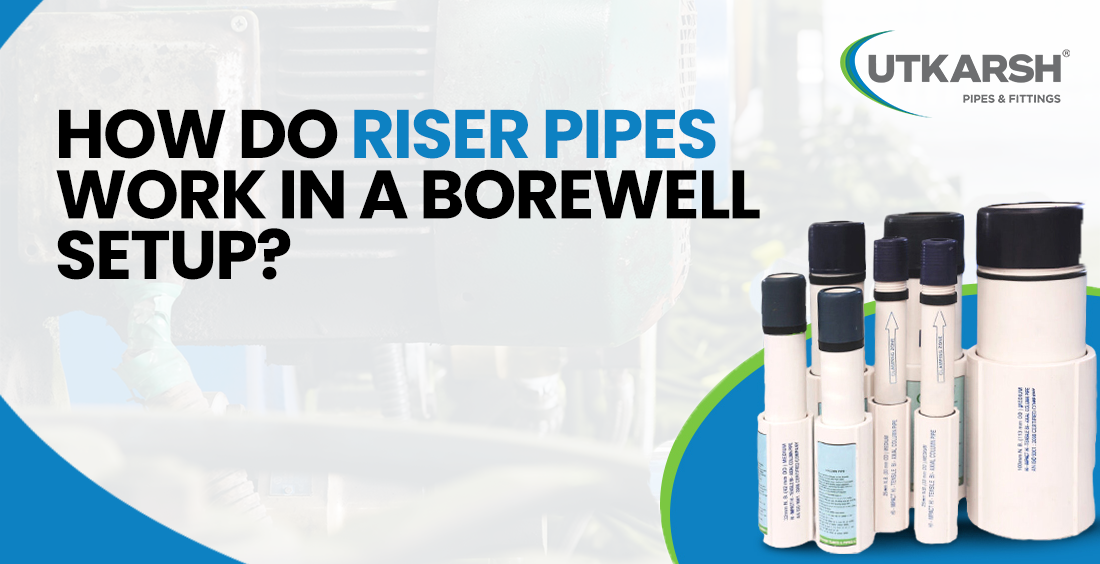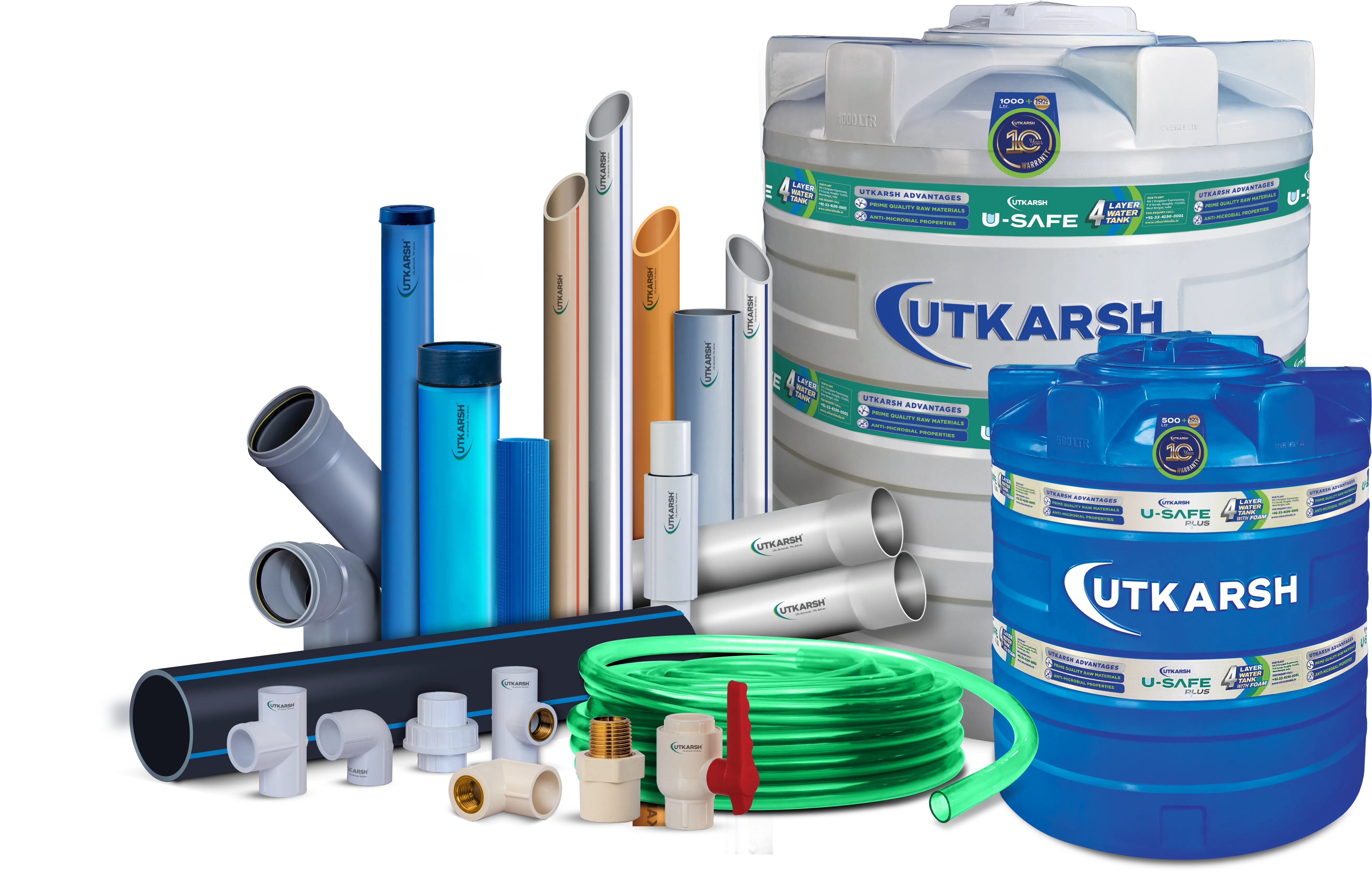How Do Riser Pipes Work in a Borewell Setup?

Borewells have become a dependable solution for accessing clear groundwater, especially in areas where the regular water supply falls short. But the efficiency of a borewell doesn’t just depend on how deep it goes- it largely hinges on the components used during borewell pipe installation, particularly the riser pipe.
In this blog, we will dive deep into understanding how riser pipes work in a borewell setup, why they are crucial, and how choosing the best borewell pipes can make a lasting impact on your water system performance.
What are Riser Pipes in a Borewell?
A riser pipe, also known as a column pipe, is a vertical pipe that connects the submersible pump (which is placed deep in the borewell) to the surface delivery point. It plays a vital role in lifting water from the underground aquifer to the ground level.
In simple words, the riser pipe is considered as the backbone of the borewell setup—it carries water all the way from deep underground to where it is needed.
Borewell Rise Pipe Function: Why They Are Important?
Understanding the borewell riser pipe function is essential to ensure a smooth water supply system. This is how a borewell functions:
Water Transportation: Once the submersible pump starts working, it pushes water into the riser pipe. The pipe turn delivers that water to the top. The quality and material of the pipe ensure minimal friction, pressure loss, and leakage.
Withstand High Pressure: Riser pipe must withstand high water pressure, especially in deep borewells. They are built to resist pressure and give structural support to the pump and the weight of the water column.
Vibration Absorption: Submersible pumps run for long hours; that consistent operation creates a lot of vibration. A well-designed riser pipe helps to absorb these vibrations, which not only protects the pump but also helps the entire system to last longer.
Corrosion Resistance: Since ground water often contains minerals and chemicals, it can wear down regular pipes over the period. Therefore, using a high-quality corrosion-resistant riser pipe is important; they are built to last and also reduce the maintenance cost.
Key Factors to Consider During Borewell Pipe Installation
A successful borewell pipe installation requires a careful selection of materials and precision engineering. Here is what you need to consider:
Pipe Materials: PVC and uPVC pipes are commonly preferred for their non-corrosive nature and long life.
Pipe Dimension and Thickness: These should match the pump’s capacity and borewell depth
Joint Fittings: Leak-proof and pressure-resistant joints ensure a stable water column.
Installation Depth: The riser pipe must reach just above the pump and be aligned correctly for efficient water flow.
Why Choose the Best Borewell Pipes?
Using the best borewell pipes is not just a matter of quality; it's about reliability, safety, and cost-effectiveness in the long run.
At Utkarsh Pipes and Fittings, we provide advanced uPVC column pipes specially designed for borewell applications. Here’s why Utkarsh Pipes should be considered as the first choice:
Corrosion-Free Pipes
High-pressure handling capacity
Leak-proof joints
High load-bearing capacity
IS-certified product
Wrapping Up:
Riser pipes might not grab much attention, but they are absolutely vital in any borewell setup. They take on the heavy task of lifting water from deep underground and supporting the entire pump system. Therefore, it is important to choose the best borewell pipes and get the borewell pipe installation done by a professional. Trust Utkarsh Pipes and Fittings—India’s leading name in water management solutions. Designed for high performance and durability.












